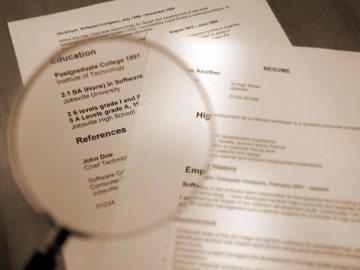What Not to Put on a Resume: 4 Simple Tips

A resume represents a job applicant; it contains essential details, including educational background, work experience, awards earned, and skills acquired. While mentioning all these details seems like a good idea, it isn't. HR recruiters review multiple resumes daily, which doesn't help to include needless details.
Writing a wordy resume reflects poorly on a job hunter's skill to share relevant details. Because of this, job applicants must be nit-picky about what to list down on their resumes, including irrelevant credential details.
If you're applying for a job and unsure where to start, this article will guide you in writing a proper resume.
Things to Exclude from Your Resume Credentials
Here are four resume tips that should be part of the list of what not to put on a resume:
-
Hobbies and interests
Unless your hobbies and interests are exciting and unique, it's best to include them on the list of what not to put on a resume. You don't want to bore HR recruiters with personal details they're not after. You compete with other applicants, so you must focus on standing out. Show the companies you're applying for that you're a fitting candidate.
List achievements such as important work made during your previous job and the newest skills learned. Discuss successful projects you led and, if possible, the promotions given. These are some factors that can appeal to HR recruiters. If you're lucky, you might land interviews and get hired.
-
Your GPA
Although it's nice to mention that you have an outstanding academic performance, you shouldn't just consider grades. It's enough to say which college you graduated from together with your degree. HR recruiters want to learn about your work experience skills and see if they're ideal for the company.
Instead of school, emphasize your reliability as an employee. Note down challenging projects you were able to solve. It would also help to include hard skills related to the roles you applied for and the skill levels. Show that you're a flexible team player.
-
Sensitive personal information
Avoid providing any personal details to HR recruiters. Only share work-related info. Besides irrelevance, revealing sensitive details about yourself invites discrimination, which can affect your chances of employment.
Whether sexual orientation, religion, ethnicity, marital status, or anything personal, it's your duty to protect yourself from harassment; thus, it should be part of the list of what not to put on a resume. Companies shouldn't make hiring decisions based on your physical appearance or personal beliefs.
-
Spelling mistakes
HR recruiters assess your application based on the relevance of your work experience and skills and how well-written it is. No matter how qualified you may be, companies might not get back to you if your resume contains spelling mistakes. A poorly written resume can indicate low attention to detail.
Before sending your application, proofread your resume. Take the time to go through all the sections. Revise spelling mistakes through spelling and grammar checks online. You can also reach out to a friend or family member to review your resume and check for overlooked errors.
Exceptions are Possible
Every job has different requirements. Some are simpler, while others are more technical. It's possible to make exceptions, depending on the job. For example, it makes sense to include your GPA if you're a professor applying for a college. High academic performance can convince HR recruiters to hire you for a specific teaching position.
Another instance is mentioning hobbies and interests on your resume when you have limited work and educational experience. Doing this is ideal for job postings that match your hobbies and interests.
Keep Your Resume Simple but Relevant
Keep your resume simple, but make sure it's relevant to the jobs you're applying for. An effective resume can cover only some of your work experiences and skillsets. You can only fit so much into one page, so focus on sharing essential details.
Like the resume tips above, Career.com aims to simplify your job-hunting process. With over 54,000 job openings, you'll find job postings that align with your work experience and skillsets.


